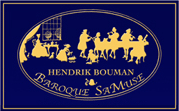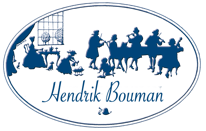When, in 1993, I started composing as an extension of my career as soloist on the harpsichord and fortepiano and music director and conductor, I naturally chose to compose in the musical languages which I love dearest and know most intimately, those of the baroque and classic era. I create intricate compositions in honour of the splendid and refined heritage of the old masters, its entertaining pantomimes, the semantics of its symbolism, the clarity of its sonorities, the wealth of its spontaneous ornamentations, the swaying rhythms of its dances.
Schooled amid the enthusiastic pioneers of the baroque revival of the early seventies, in Holland, and having carried the Ensemble Musica Antiqua Köln on my ‘flourishing’ basso continuo into the eighties, I had acquired I believe, in the detailed understanding of my field, a basic expertise for composing period music.
It was customary for musicians of the 17th and 18th centuries to compose, to improvise and create variations ad infinitum, and to perform their own works.
Considering the lasting success of baroque and classic music in our time, as demonstrated on daily classical music programs, could we not agree to honour this heritage, based on beauty and joy, proportion and ingenuity, in new creative compositions now becoming actualised in Early Music today.
In the condensed form of a short rondeau, a ten minute











